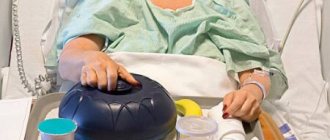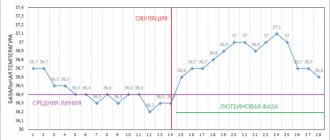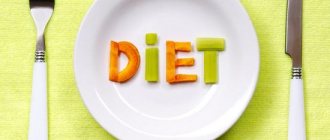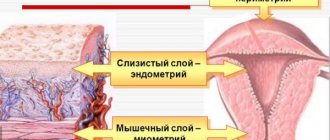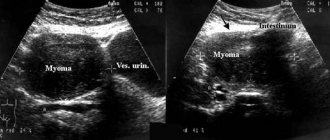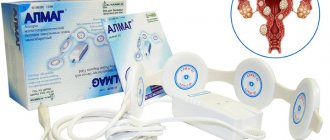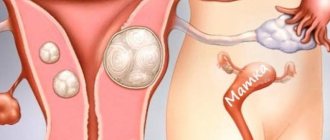Diet before surgery
It is recommended to follow a special diet for some time before the operation. It will prepare the body for surgery. He will recover easier and faster after the operation and will endure it more easily. During this period, you need to eat in accordance with the following rules:
- Do not eat foods that are difficult to digest. These are legumes, meat and other protein-rich foods;
- Do not eat foods that can cause constipation or flatulence. Their full list is given below. Difficulties during defecation can cause sutures to separate;
- You should not eat fatty foods and large amounts of animal fats and butter. This will also put unnecessary stress on the digestive system;
- It is recommended to reduce fluid intake to prevent swelling.
But in each specific case, the doctor prescribes the diet individually. Other product groups besides those listed may be prohibited. This depends on the patient's condition and the type of intervention.
Diet in the early postoperative period
The early postoperative period is the first three days after the intervention. It is especially important, since during this time the body recovers from the stress caused by the intervention. During the same period, unpleasant consequences of the operation may develop. Proper nutrition is a prerequisite for successful recovery.
It is necessary to build a nutrition schedule in accordance with the following rules:
- Drink a lot, at least 1.5 liters of water per day, this will help avoid dehydration;
- It is forbidden to overeat, as digestive problems will worsen the condition of the body;
- Meals in the first days after the intervention should be monotonous;
- The list of permitted products must be expanded gradually and only after the third day;
- On the first day, it is recommended to eat only liquid foods;
- On the second day, it is permissible to include semi-liquid dishes;
- On the third day, you can eat food of your usual consistency;
- Give preference to low-fat dishes (exclude oil);
- It is also better not to eat meat, legumes and other difficult-to-digest foods;
- Reduce the amount of salt in food;
- You should eat in small portions;
- The calorie content of food these days should be reduced to 800-1000 kcal.
Calorie content can be gradually increased. The ideal option would be the following dosage: on the first day 800 kcal, on the second – 900, and on the third – 1000.
Example menu
What can you eat on the first day after surgery? At this time, you should eat only broths and drinks. Broths should be low-fat, preferably vegetable. But it is also permissible to use low-fat, non-concentrated meat broths. It is recommended to consume them without salt, as it retains water in the body and causes swelling. You need to eat 6-7 times on the first day, consuming 100-150 ml of nutrient liquid.
On the second day, vegetable puree is allowed. To prepare it, just grind the boiled vegetables in a blender. Salt can be consumed in minimal quantities. Meals remain fractional - 5-6 times a day. You can consume 100-120 g of puree.
Diet in the late postoperative period
The postoperative period, called late, begins on the fourth day after the intervention. At this stage, you can gradually include lean meat and fish in your diet. You can also (also gradually) increase your caloric intake to a normal level. Although you can eat as usual, for large quantities of food it is recommended that it be pureed. It is good to eat steamed vegetables.
Potentially constipating foods should still be avoided. Eliminate fiber consumption. Increase your vegetable consumption. In some cases, for faster recovery, the doctor recommends consuming more calories than usual. But overeating is dangerous, so such a diet is prescribed in consultation with a doctor.
Example menu
It is preferable to eat small meals. Follow this diet for another 1 to 3 months after surgery. The doctor will be able to determine more precisely based on the patient’s condition. An approximate diet should be like this:
- Breakfast: oatmeal or buckwheat porridge without oil, with fruit, rose hip decoction or weak tea;
- Second breakfast: kefir or jelly with rye bread or fruit;
- Lunch: vegetable soup, lean meat or fish, steamed, with a side dish of fresh or stewed vegetables, tea;
- Afternoon snack: fruit, jelly, kefir or yogurt;
- Dinner: buckwheat porridge or vegetables, with lean fish and meat.
Such meals can be quite varied with proper menu planning.
What can you eat?
Normally, a woman with fibroids is allowed the following::
- yoghurts, fermented baked milk, cottage cheese and other fermented milk products. The main condition is a low percentage of fat content;
- plants of the legume family - peas, beans, mung beans, soybeans;
- any fish. In this case, it is better to choose fatty varieties;
- bran and bread made from bran flour;
- green or hibiscus tea, compotes made from fresh fruits or based on dried fruits, rosehip decoction;
- absolutely all fruits and berries, stewed and baked vegetables. Particular attention should be paid to cabbage, carrots, pumpkin, spinach, lettuce and tomatoes;
- seafood;
- all porridge;
- nuts.
It is advisable to discuss the dietary menu with your doctor, since he will select the right products based not only on the presence of fibroids, but also on other diseases.
Prohibited Products
The diet after fibroid removal involves the complete exclusion of certain types of food. Foods from the list below should not be eaten for 2-3 months after surgery.
- Fatty foods (red meat, dishes cooked in oil);
- Vegetable and animal fat – you need to reduce your consumption of butter and vegetable oil;
- Fried foods (it is better to replace frying with boiling or steaming);
- Spicy foods, seasonings, sauces, etc.;
- Preservatives and dyes (found in sausages, sausages);
- Semi-finished products (frozen cutlets, etc.);
- Foods that cause constipation (listed above);
- Dairy products (they should be replaced with fermented milk);
- Fat cheeses;
- Strongly flavored products;
- Alcoholic drinks.
High-quality nutrition and a healthy lifestyle are the key to a quick recovery. This will also reduce the likelihood of recurrence of the disease.
The news about fibroids puts women in a state of shock, because they have heard that the only method of treating this disease is abdominal surgery to remove the uterus. But that's not true. The doctors at the fibroid treatment clinics with whom we cooperate take good care of the female reproductive organ. For fibroids, they perform embolization of the uterine arteries. After the procedure, women do not need to restrict their regimen or special diet.
Please note that this text was prepared without the support of our Expert Council.
How to lose weight?
As you know, excess weight feeds fibroids . The fact is that the fat layer can independently produce estrogens, which are necessary for the growth of myomatous formation. In this regard, women diagnosed with fibroids are advised to lose weight.
CAREFULLY!
The main condition for losing weight with fibroids is to do it smoothly. A sharp weight loss can be an impetus for the active growth of a tumor.
The approach to the problem of losing excess weight should be comprehensive and consist of dietary nutrition and physical exercise.
Diet has already been mentioned, but as for physical exercises, they should definitely be discussed with your doctor.
The intensity of the load and certain sets of exercises depend on the location of the tumor, the stage of the disease and the general condition of the patient. In most cases, doctors recommend swimming, yoga, water aerobics or Pilates. As for fitness, it is not indicated for all women with fibroids.
All physical exercises with fibroids should be done smoothly - sudden movements, jumping, twisting, and abdominal exercises are in many cases absolutely contraindicated . In addition, a woman should monitor her pulse - during exercise it should not rise above 110 beats per minute.
It is recommended to pay attention to the Bubnovsky set of exercises, which are designed specifically for women diagnosed with fibroids.
In some cases, massage is also recommended.
Diet after laparoscopic surgery for fibroids
After laparoscopic removal of uterine fibroids, the postoperative period is less problematic and shorter. Doctors allow the woman to get up by the end of the first day after the operation. The main advantage of laparoscopy is that during the operation the surgeon does not make a large incision in the anterior abdominal wall. The stitches on the wound will not come apart, but flatulence should be prevented.
After laparoscopy, the woman is allowed to eat on the second day. Food should be taken in small portions, 5-6 times a day. The following dishes are excluded from the patient’s diet:
- spicy, fatty and fried foods prepared with large amounts of vegetable or butter;
- fats of animal origin.
- smoked meats, pickled and canned food products.
Doctors do not recommend eating lard and fatty meats after laparoscopy. Sweets and canned goods should be avoided. Bean dishes are excluded from the menu. Doctors do not recommend drinking alcohol for 30 days after laparoscopy.
The daily diet should consist of the following dishes:
- unrich broths;
- vegetable soups;
- puree and porridge;
- whole grain bread;
- fermented milk products.
Food should be simple, steamed, in the oven. Vegetables are boiled, steamed or stewed. The patient's diet after laparoscopy should contain sufficient amounts of protein, vitamins and minerals.
What can't be done?
The following products are not recommended:
- butter and margarine;
- processed cheese and other products containing refractory fats, for example, pastry creams and ice cream;
- fatty meat products, chicken meat is recommended;
- all sweets, with the exception of marmalade, marshmallows and marshmallows (naturally in limited quantities).
- smoked meats and sausages;
- fatty dairy products;
- baked goods - cookies, pies, rolls, etc.
Read about other contraindications for fibroids in this article.
IMPORTANT!
As for the cooking process, it is best to use a double boiler, oven or multicooker. Boiled and stewed foods are also allowed. It is very important to give up fried foods!
The dietary menu for myomatous tumors in the uterus does not have clear instructions; a woman can independently adjust her diet, taking into account the above points.
Dietary recommendations after hysterectomy
Abdominal surgery to remove the uterus is one of the most difficult surgical interventions. In the postoperative period, it is important to take care of proper nutrition, which will help replenish the deficiency of nutrients and restore strength. In the early postoperative period, the patient is provided with a drinking regime. She is recommended to drink at least 1.5 liters of clean water. In the early postoperative period, food after hysterectomy should be unsalted, low-fat and non-spicy.
Food is taken in small portions, 5-6 times a day. Since after surgery on the pelvic organs there is a risk of postoperative sutures coming apart, foods that can cause bloating and constipation are excluded from the diet:
The calorie content of food is increased gradually so that the gastrointestinal tract has time to adapt after surgery and begin to function normally. In order to stimulate the formation of red blood cells, the menu includes dried apricots, pomegranate juice, buckwheat, and lean meat (veal).
On days 5-6 after laparotomy hysterectomy, the patient is provided with adequate nutrition with sufficient calories and the necessary set of nutrients and vitamins. Fatty, spicy, difficult to digest foods are excluded from the diet. The diet is expanded gradually, monitoring the body’s reaction and the patient’s sensations. On average, to restore strength after surgery, you need a balanced diet with a calorie content of 2800-2900 kcal. In this case, protein should be 90-95 grams, fat – 100-105 grams, carbohydrates – 400 grams.
The menu must include fish and meat dishes, seasonal fruits and vegetables, cereal dishes, fermented milk products and low-fat cottage cheese. You should avoid foods with dyes, flavors, hot spices and seasonings, refractory animal fats, and sweets in large quantities. You need to drink fruit juices, herbal decoctions, weak tea, still mineral water. After uterine artery embolization, women do not need to follow a special diet.
